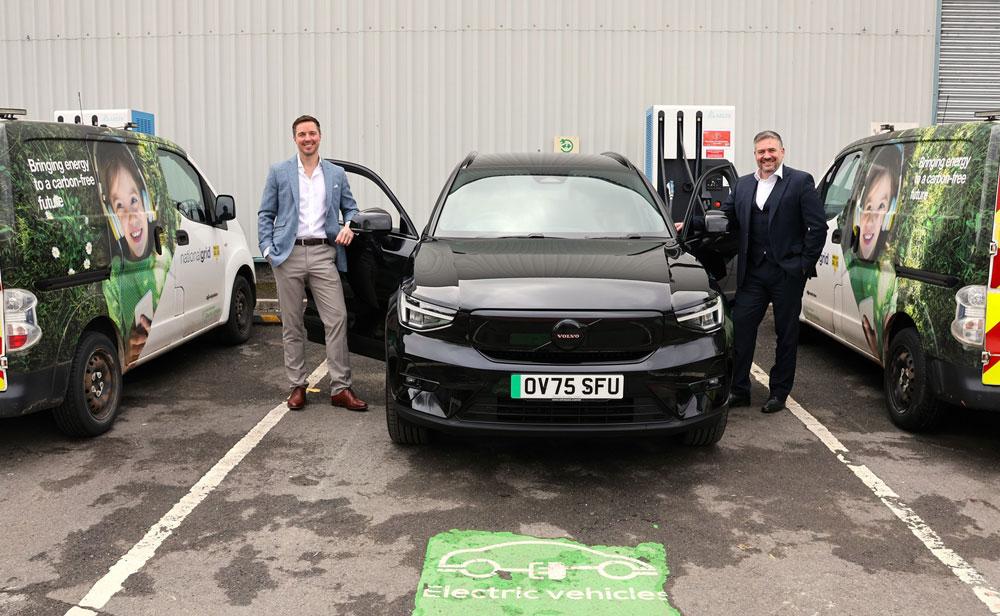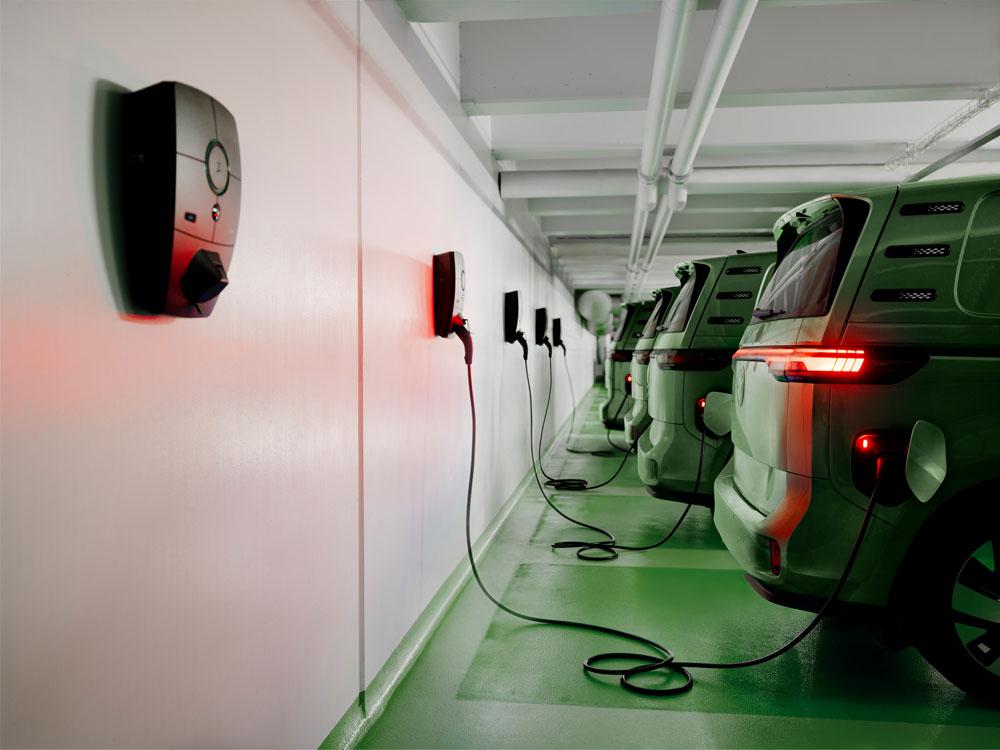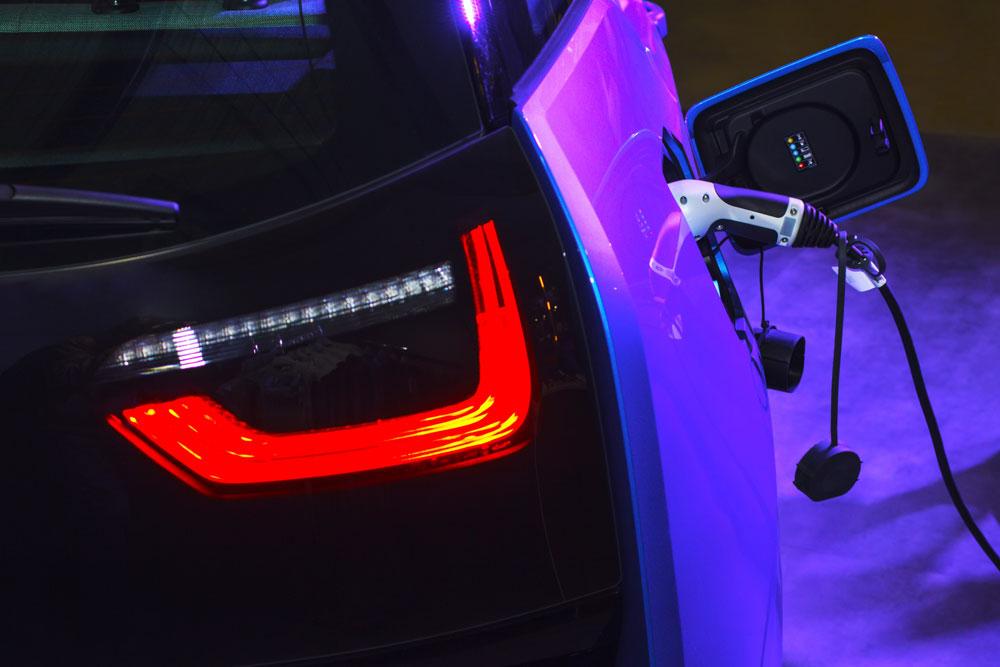The largest fleets in the UK continue to lead the EV transition but are facing challenges. Members of the UK Electric Fleets Coalition are urging the government to offer businesses greater detail and funding to reinforce confidence in their EV ambitions
In 2020, Climate Group launched the UK Electric Fleets Coalition (UKEFC) with the goal of increasing UK policy ambition and action on electric vehicles (EVs). This was before the government had set a 2030 phase out date for petrol and diesel cars and when uptake of EVs looked very different.
Government ambition has increased dramatically and has been coupled by a surge in demand for EVs. While momentum continues to build, in extremely uncertain times, continued government support is badly needed.
Recently, the UKEFC sent a letter and policy paper to Prime Minister Rishi Sunak and key ministers in his government, calling for measures that will enable fleets to continue to lead the EV transition in the UK.
History of the UKEFC
Back in 2019 the UK’s EV landscape looked very different. While the demand signal from EV100 members was clear, we needed to see more ambitious targets from government in order to send a message to car makers that now was the time to increase manufacture and supply of EVs to the UK.
We called for the then Prime Minister Boris Johnson to end the sale of new conventional petrol and diesel cars and vans by 2030.
Last year, acknowledging lack of supply of EVs as a key challenge to meeting an earlier phase out date, the group called for, among other measures, a Zero Emission Vehicle (ZEV) Mandate.
Maintaining EV momentum
Since then, the EV Infrastructure Strategy and the Transport Decarbonisation Plan have helped provide detail on how ambitions will be realised. Meanwhile, take up of EVs has increased across all segments.
However significant challenges remain and the need for immediate and strong action can’t be understated. At the COP27 climate change summit, UN Chief Antonio Guterres stated: “We are in the fight of our lives, and we are losing.”
In the UK, road transport remains the most significant source of carbon emissions. Meanwhile, air pollution, of which road transport remains the major source, cuts short over 40,000 lives a year, negatively affecting millions more.
The technology that will underpin a zero emission transport system is already here and is improving in efficiency and affordability every day. Demand from the general public as well as business fleets, as evidenced by a growing EV100 membership, has never been stronger.
The new Prime Minister needs now to make sure his government delivers on existing ambition. Through targeted support and investment, businesses can enjoy greater certainty – both those that are looking to invest in EVs for their fleets, and for manufacturers making the EVs themselves. In addition to ensuring the vehicles on the UK’s roads are as clean as possible, investment in charging infrastructure, electricity distribution networks and British-based EV manufacturing will create good quality jobs across the country. The measures that will address transport emissions will also place the UK at the heart of the increasingly competitive global market for EVs.
The UKEFC 2022 policy asks
UKEFC Signatories are calling on the government to put in place measures to increase the supply of electric vehicles.
Lack of supply and choice of zero emission alternatives is one of the leading barriers that is limiting uptake. Exacerbated by ongoing supply chain issues, long lead times, lack of choice (or no option at all for some vehicle types) and lack of availability are challenges that companies face and ones that are particularly acute for commercial vehicles.
Due to lack of supply, EV uptake grew by less than the overall market for the first time since the pandemic last month, meaning October is the first month to see BEV market share fall year on year since May 2021.
UKEFC signatories welcome the planned Zero Emission Vehicle (ZEV) mandate as a way to help secure supply of EVs to the UK. It is also recognised as an opportunity for the UK to attract additional Battery Electric Vehicle (BEV) manufacturing in the UK. This is a key facet to the UK government’s industrial strategy, although recent announcements have dented confidence. Electric van start-up Arrival has announced that it will scale back its UK operations to instead focus on the US. BMW has stated that it plans to manufacture the electric Mini in China rather than Oxford, and there have also been reports that UK battery start-up Britishvolt is facing serious financial difficulties.
Drive further demand
Demand for Zero Emission Vehicles has significantly increased in the last three years. At the end of last year, ZEVs outnumbered diesel cars for new car registrations. Meanwhile, sales of electric vans have almost doubled over the last 12 months, although starting from a far lower baseline.
While sales of EVs will clearly continue to grow especially if supply issues are resolved, increasing energy costs and inflationary pressures have affected the Total Cost of Ownership (TCO) for electric cars and vans. UKEFC members are calling for the new government to provide grant certainty for vans. Reductions or restrictions on grant applications should be announced in advance and in consultation.
UKEFC members are also calling for the government to commit to maintain favourable Benefit in Kind (BIK) rates for EVs BIK and increases should be no more than 1% a year between 2024/25 and 2030/31, with no cliff edges.
What’s more, the coalition wants the Advisory Electricity Rates (AER) for reimbursing electric company car mileage to remain at 5p per mile, linked to 2021 electricity prices which have more than doubled over the last year. The AER for reimbursing electric company car mileage should be increased in line with increasing energy costs.
A reliable and interoperable chargepoint network
Eighty-two per cent of EV100’s UK-based members say that access to reliable charging infrastructure, both at-home and across the road network, is a ‘significant or very significant barrier’ to EV adoption. In particular, drivers lack options when they do not have access to at-home charging, with public charging infrastructure often being too slow, unreliable, or unavailable due to increasing demand.
OZEV’s recent consultation on a new regulatory framework was welcome, however companies are now keen to see the detail behind this. UKEFC members are calling for the new government to provide greater support for the installation of multiple chargepoints/upgrades to grid connections. A tendering process will help businesses in the near term to offset the cost of upgrading strategic grid connections
The coalition is also calling on the government to provide detail of how national ambition will be locally delivered. The almost £1 billion committed through the Local Electric Vehicle Infrastructure (LEVI) fund and On-Street Residential Chargepoint Scheme are welcome and will provide crucial funding for the coordinated delivery of changepoints across the UK. But we need clarity around how these funds will be administered. A statutory obligation will empower Local Authorities to plan and deliver charging infrastructure. Local authority access to the Government’s LEVI charging infrastructure fund should be extended from 2025 to 2028.
For many van drivers, charging overnight is the only option, yet many don’t have either a private driveway or access to on-street charging options. Changes in planning rules should guarantee the ‘right to plug’ to all those using an electric vehicle through requiring local authorities to install in areas where there is proven current and future demand.
The UK as a world leader in EVs
The transition to EVs is well underway and the UK continues to lead the charge. Business fleets have demonstrated the most ambition for several years – both by getting EVs on the road, and by continued efforts to affect positive policy shifts to make this process easier for everyone in the future. The new government now needs to offer businesses greater detail and funding to reinforce confidence in previously stated ambition.






